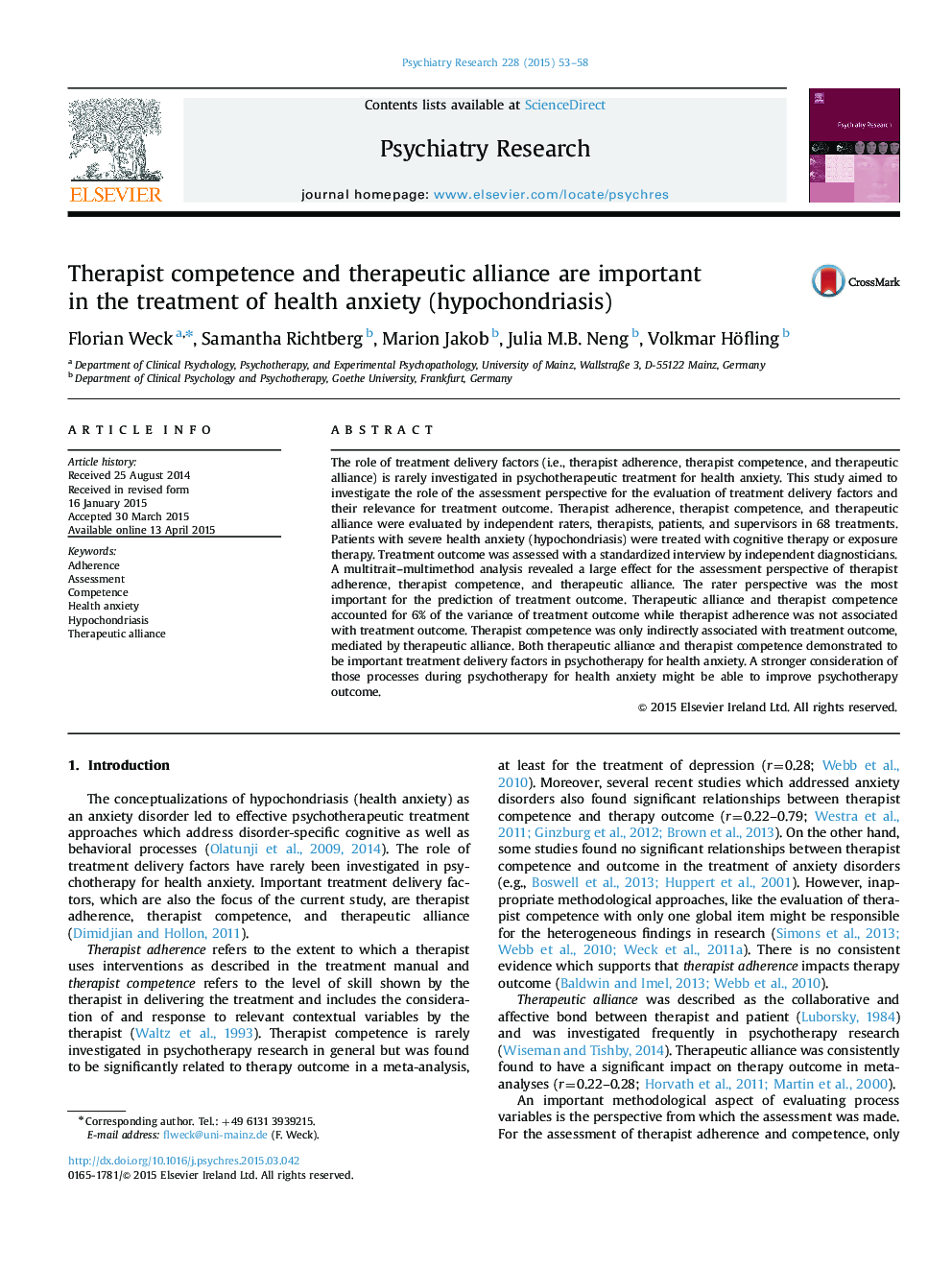| Article ID | Journal | Published Year | Pages | File Type |
|---|---|---|---|---|
| 332903 | Psychiatry Research | 2015 | 6 Pages |
•We assessed therapist adherence and competence as well as therapeutic alliance.•Four perspectives (raters, therapists, patients, and supervisors) could be considered.•Therapist competence and therapeutic alliance were predictors of therapy outcome.•The competence–outcome relationship was mediated by therapeutic alliance.
The role of treatment delivery factors (i.e., therapist adherence, therapist competence, and therapeutic alliance) is rarely investigated in psychotherapeutic treatment for health anxiety. This study aimed to investigate the role of the assessment perspective for the evaluation of treatment delivery factors and their relevance for treatment outcome. Therapist adherence, therapist competence, and therapeutic alliance were evaluated by independent raters, therapists, patients, and supervisors in 68 treatments. Patients with severe health anxiety (hypochondriasis) were treated with cognitive therapy or exposure therapy. Treatment outcome was assessed with a standardized interview by independent diagnosticians. A multitrait–multimethod analysis revealed a large effect for the assessment perspective of therapist adherence, therapist competence, and therapeutic alliance. The rater perspective was the most important for the prediction of treatment outcome. Therapeutic alliance and therapist competence accounted for 6% of the variance of treatment outcome while therapist adherence was not associated with treatment outcome. Therapist competence was only indirectly associated with treatment outcome, mediated by therapeutic alliance. Both therapeutic alliance and therapist competence demonstrated to be important treatment delivery factors in psychotherapy for health anxiety. A stronger consideration of those processes during psychotherapy for health anxiety might be able to improve psychotherapy outcome.
